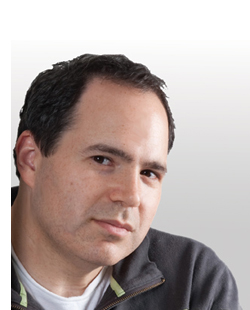
This post is adapted from content that first appeared on the Nature blog with the kind permission of the author.
Planetary scientist Heidi Hammel was at the telescope when Facebook alerted her to an important new target: a comet had just crashed into Jupiter. She said, “I learned about one of the impacts on Jupiter via Facebook, and we were able to do immediate follow-up.” It is no secret that, scientists are increasingly using social media not just for outreach or for fun, but to do real, ground breaking, earth-shattering science.
There are many websites devoted to science news and amateur science—but where do scientists go online to interact with their colleagues professionally? I asked my colleagues on the Marketing for Scientists Facebook group (mostly astronomers) to share their social networking advice. I think their answers point to a fascinating shift in the social fabric of the scientific community.
Use Facebook as a forum for scientific debate.
If you have a lot of Facebook friends, you can have professional scientific discussions right on your wall. Angela Speck told me, “Since a significant fraction of my friends are scientists they do respond to science questions. And then the ensuing wall discussion is like a chat over lunch.” Keep in mind that it takes time and effort to build that long list of followers or friends, and then more effort to keep up with them and sort through their status updates, so that tactic won’t necessarily be effective for everyone.
Join Professional Facebook or LinkedIn Groups.
Instead of building large contact lists themselves, more and more scientists are working with colleagues through Facebook groups. For example, Adam Burgasser told me, “Our ‘Low Mass Stars and Brown Dwarfs’ group has been a great place to post papers, promote astro apps, announce conferences, ask about pesky references etc.” Joining such a group is like instantly acquiring hundreds or thousands of high-powered new friends and followers.
LinkedIn groups are also a fertile home for scientific research. As Mark Eisner said, “In my field of hydrogeology, or more generally environmental consulting, I belong to 50. So much I cannot keep up.” These groups are a great forum for scientific discussion and career networking in particular.
Facebook and LinkedIn groups have become new incubators for scientific progress, providing important virtual places for scientists to work and to mingle. The trouble is that there’s no good directory of these groups of professional scientists on social networks. The most reliable way to find the professional Facebook groups for scientists seems to be to “friend” lots of colleagues whose interests overlap with yours, and look at their Facebook pages to see what groups they belong to. Then you have to ask permission to join. Otherwise, you need to start your own group and hope one doesn’t exist already for the topic you chose.
Perhaps one day, an organization like OSA or the American Association for the Advancement of Science will maintain a directory of Facebook and LinkedIn groups where active professional scientific collaborations are taking place. Such a tool would help young scientists meet established scientists, and help established scientists move into new fields where they don’t already have contacts.
In the meantime, the rise of this informal network of professional scientist groups makes it clearer than ever: in science, it matters who your friends are.
Marc J. Kuchner (marc@marketingforscientists.com) is an astrophysicist at NASA, a country songwriter, and the author of the book Marketing for Scientists: How To Shine In Tough Times. His website can be found at http://www.marketingforscientists.com/.
